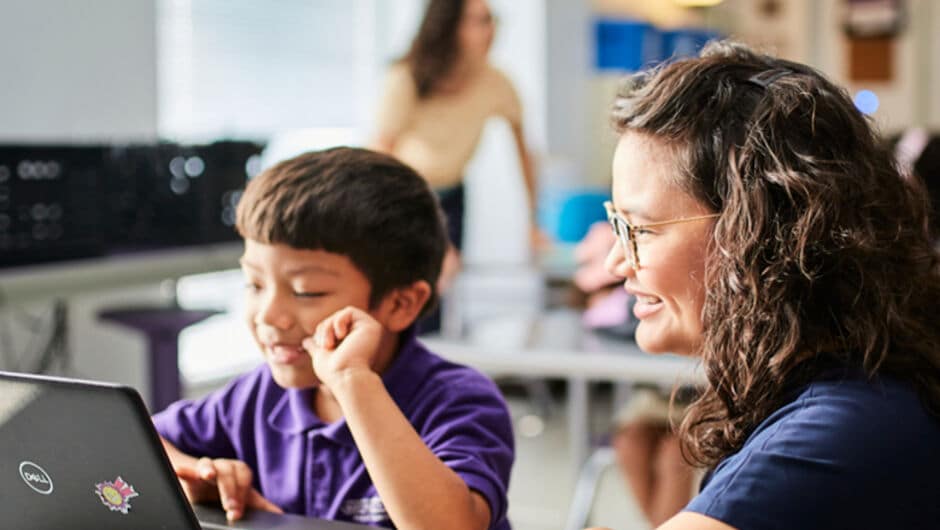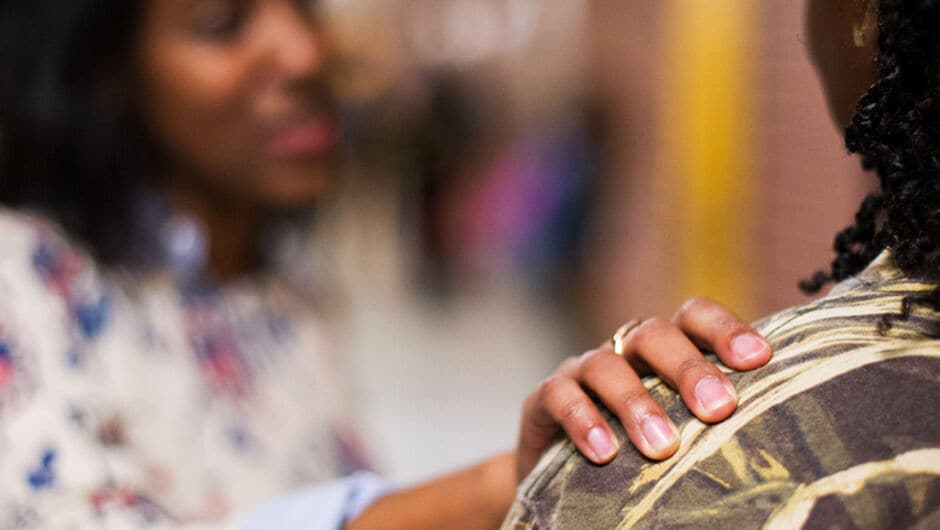This High School Junior Wonders If School Will Return Next Fall
She shares what it was like to observe Ramadan in a pandemic, and how she’s restructured her summer plans.
In the early days of school closures due to coronavirus, 16-year-old Haanya Ijaz, who lives in Dublin, Ohio, welcomed the break. As a high school junior, her days are jam-packed: She’s taking multiple classes at The Ohio State University, and involved in several extracurriculars, including her work as a student journalist at both her local newspaper and the student newspaper.
There are some pluses to learning from home, Haanya points out, like perfecting her time management skills. But many assignments feel like busywork—subjects that she enjoyed in the classroom turn tedious when learning occurs via Zoom—and maintaining motivation isn’t always easy.
For our latest installment of Community Voices, we spoke with Haanya about what it’s like to observe Ramadan while socially distancing, her summer plans (including an in-person internship turned remote), and her predictions—and hopes—for the next school year.
What have your days been like since Ohio closed schools?
I think March 15th or 14th was when we first started having online school. At first, it was actually a nice break for me for the first two weeks because as a junior, you have so many responsibilities. I was just all over the place, so it was nice to finally catch up on sleep and things like that.
As time goes on, a lot of my summer programs got canceled, like internships. It's a lot more worries about college applications and then, obviously, it's very hard to stay motivated with online school, especially because we don't have set class times. We just have assignments due at the end of the day or at the end of the week, so you have to stay on top of your own work.
I'm Muslim, so right now, we're observing Ramadan, which is fasting. That on top of school work, it's hard to manage because of my sleep schedule. My sleep schedule is all over the place. I'm going to sleep really late. I think right now, this is our last week of online schooling, but for the past few weeks, it's just been wake up and then try to get some stuff done, but it's really hard to just sit in one place for a long time and do tons of school work.
I think I would prefer in-person school but the most responsible decision during this time is online.
Tell me more about observing Ramadan—is it a bit easier to fast with school closed, or more challenging?
I think it's a mixed bag. I think the thing about Ramadan is I never had a problem seeing people eat in front of me. Yes, obviously you get a little hungry. I think the biggest thing about Ramadan is the sleep schedule. What happens is you have to wake up at 3:00, 4:30 AM to have your pre-dawn meal. Then you break your fast at sundown.
It's recommended to pray extra at night. What happens is that I go to sleep really late and I wake up late. That aspect with school, when it was in-person school, my sleep schedule was hard to manage. We have to wake up in the morning to eat, then go back to sleep, then wake up for school. Now I think with online schooling, that maybe is a little bit easier because I can do things on my own time.
I also think with Ramadan there's a huge community aspect to it, like with some community, meeting at the mosque every day, eating, breaking fast with family and friends. We have the Eid prayer, which is a special prayer on Eid. Obviously, now all of that has been canceled, so you're at home. That brings a huge difference this year, the community aspect is gone. I think it's a mixed bag.
Are your parents able to work now? Are they essential workers or is everybody at home?
My parents are doctors, so they've still been working. They've still been working for now. We're really lucky they're still able to keep their jobs during this time.
Is that a little stressful too?
Yes. My mom works in a clinic. Now they've moved her. They've moved it to being mostly telemedicine, over the phone kind of thing, but she still goes to the clinic, but there's regulations. Before there wasn't and if she had patients with COVID symptoms, there were no tests. There's not enough tests, so they don't know what to do with these patients. She just had to wear PPE to work, but now it's moved to mostly telemedicine, like over the phone.
How are you attending school—are there recorded videos, or are you attending Zoom sessions?
This semester, I took two classes at The Ohio State University (OSU), which is a college near my house. I took three classes at my high school. My OSU classes finished a little bit early because the college semester ends earlier.
My high school classes [had] asynchronous learning, that's what they called it. For example, I take calculus, so we would have a worksheet to turn in by the end of the day. That was our everyday thing. Then for chemistry, it was watching a video, taking notes, and then doing a worksheet. Then we have quizzes. There were a few [in-person meetings]. We'd have the review session and have a Zoom meeting, but it was mostly like you have to be responsible for your own, like grade your own work, and be responsible for your own learning.
How do you think the school closures this year—and the pandemic overall—will affect your education over the long term, especially as you think about applying to college?
First for the college application bit, for me personally, I'm really lucky in the sense that I took my ACT my sophomore year of high school and I'm happy with how it went, so I'm not worried about retaking the ACT, but a lot of my friends are. There's the worry, are colleges going to be more lenient with their application standards because so many things have been canceled? For the class of 2021, if college applications still continue to be the way they are, the way they have been, I don't think that's necessarily a good solution, because that could really affect a lot of kids' chances of getting into college, and could affect their future education a lot in a detrimental way.
I don't personally think the way we've been doing online schooling is the best way to learn. At least in person in school we had more hands-on things like labs, and I think online schooling is so tedious, because I actually enjoyed my subjects in school. I like chemistry. I really enjoyed lab days. I enjoy the subject matter, but doing it at home it's just so tedious and I take zero interest in it.
I think another aspect of it may be because at least, in our school, how I mentioned some kids have just stopped interacting with the material completely. I know kids who have responsibilities outside of school, babysitting, or maybe unstable homes. At least coming to school there was some sort of accountability, but now there's almost none.
I guess we should be worried about is, Are these kids getting a proper education? What's happening to these kids who have unstable homes? Who maybe have a system at school, some continuation of their education, but now if they've just stopped interacting with the online material. What's happening to them?
Is there anything that you find positive about online learning?
I think maybe one positive thing about online learning is because you have to take more responsibility over the things you're learning, grading your own work. Staying more on top of things I guess. I've kind of had to teach myself better time management skills to stay on top of things and studying skills, because usually during school you just come home, do your homework and then whatever.
Now you have to schedule your whole day out and it can be really hard to stay on top of it.
I think I've taught myself, try to wake up earlier and get things done, and then allot some time out of the day for yourself. I think that's definitely something, the hardest part of it is the lack of structure. I think having to teach yourself that, it's hard, but it can be pretty hard. I think teaching yourself that skill is really important.
I know you’re involved with Student Voice, a student-led organization to combat educational inequity. What’s your role?
Yes, I was actually involved with Student Voice from my sophomore year of high school. They have a journalism cohort. The first journalism cohort I was a part of. Since then, I've been really involved in journalism.
I'm into the Columbus Dispatch, which is a newspaper in my area and my school newspaper. This year, they formed a group, the Press Corps, which is basically people who were in the journalism cohort to continue to be a part. We work with them to write drafts. They give us media opportunities, they share opportunities with us.
With school closed, are you focused on journalism as one of your main extracurriculars?
Yes, I'm getting more time to write and I've been trying to look out for more opportunities. I mean there's really no in-person opportunities left, they've all been canceled, but opportunities that are primarily online. I'm actually president of my mosque's Youth Committee. Right now what we're trying to do is we're trying to organize a fundraiser to make essential boxes.
We're trying to start up a fundraiser for essential boxes. I think, in this time, the main thing we could probably do is somehow community work and fundraising in a safe way because there's been a lot of people affected by COVID.
“I think I would prefer in-person school but the most responsible decision during this time is online.”
What are your plans for the summer?
I had a research internship lined up for me through the psychology program at my local university. There were two similar programs that I applied to, which both got canceled. I think now, one of them has switched online, so I might just continue, but I think, for now, I guess you could say I'm a student journalist in the sense that I'm the senior editor of my school newspaper and I write for local newspapers in my area, obviously through the Press Corps, so I'm trying to continue to keep on writing and keep up that, my freelance journalism going.
Then, I'm honestly not 100 percent sure right now what's going to happen because I'm going to have a lot more free time. I've been reaching out to different programs and asking them if there's been any switched to online or maybe it's labs they're opening up. For now, I think I'm still figuring out what's going to happen this summer.
Have you been thinking about what things will be like at school next year?
Yes, I think there is a strong chance that we might have fall semester online just because I don't think the curve has really flattened too significantly. I know Ohio's a little bit better than other states because of the lockdown but I do think there's a good chance we're going to have next semester online. Because we've been forced to do things online, I hope that maybe schools and then institutions will explore different avenues or different things we can take advantage of online. I guess maybe one good thing that's happened because of this is that we've improved the way we use online platforms so maybe when we switch back to regular schooling we can take better advantage of those things.
This interview has been edited and condensed.
More Community Voices
“COVID-19: Community Voices” offers a glimpse of life and learning during the coronavirus school closures, in the words of students and parents in the communities we serve. Read the full series.
If you'd like to tell your story or would like to suggest a story for us to cover, please email us. And find resources for educators supporting students through the coronavirus outbreak at Teach For America's educator resource hub.
Sign up to receive articles like this in your inbox!
Thanks for signing up!
Content is loading...






